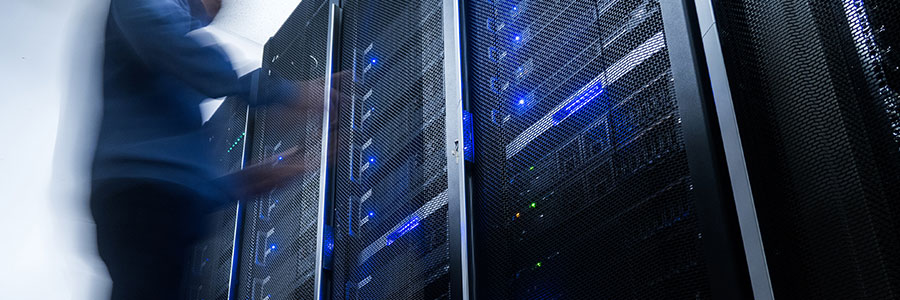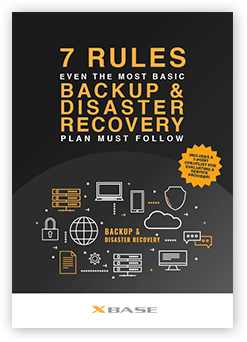There’s an old idiom that applies very well to data storage: “Don’t put all your eggs in one basket.” That is, if you keep all of your data in one place, you may risk losing everything when your IT systems crash or when you suffer a large-scale cyberattack or data breach. To prevent these from harming your business, you need to have off-site backups.
Off-site backups are copies of your data that are stored in locations other than your place of operations. Depending on how important and how often your files are updated, you can set up different backup frequencies for different types of files. However, regardless of the frequency, the backup process is essentially the same: initially, backup software takes a snapshot of the original data, encrypts it, compresses it, then transmits it to a secure off-site location. Then, for every subsequent backup, the software checks for changes made to databases and syncs those changes with the existing backup, thereby updating it.
On-premises (on-prem) backups — i.e., copies stored in media or on hard drives on the server where the original files are located — are great for immediately replacing lost or corrupted files, but when a fire or flash flood destroys the source server, the local backups are compromised as well. Data stored elsewhere avoid such peril, assuring you of business continuity despite suffering natural or man-made disasters. Here are some other reasons why you need off-site backups:
Primary storage space is limited and precious
When you decide to store files on-premises, you need to invest in hardware to do so. Because it’s expensive, you’ll want to manage that space so that you won’t have to buy more storage. And even when you can afford it, such hardware takes up physical space — space that your business might not readily have.
Moreover, enlarging your on-site hosting infrastructure often requires a large financial commitment and confidence that you’ll indeed use it optimally. Otherwise, when your storage needs drop drastically, you’ll end up with high-tech paperweights. Off-site backups, on the other hand, are located in the cloud, which is highly scalable for your expanding or shrinking storage needs.
Off-site backups grant you space for noncritical systems, programs, and files
Using off-site backups lets you dedicate your primary storage for your operating system (OS), important programs, and critical files only. This allows it to run optimally, as it won’t be burdened by other things.
If you have a managed IT services provider (MSP) handling your primary storage for you, limiting the use of the primary storage as described above means not having to update it frequently since its data does not change often. However, letting it do backups as well will make you incur more costs than if you were to relegate backups to off-site resources instead.
Download our free eBook!
Find out what a successful and robust BDR plan should look like by reading our eBook: 7 Rules Even the Most Basic Backup & Disaster Recovery Plan Must Follow.
Backups are crucial for business continuity, disaster recovery, and compliance with data regulations
As mentioned, off-site backups allow you to “put your eggs in different baskets.” When your hard drive fails or your OS crashes, off-site backups will make your data readily available to you, enabling you to resume primary business functions while you address issues. This also means that you’ll recover from disasters faster than the competition that doesn’t have off-site backups.
Ransomware in particular can put you in a serious bind because when it seizes your on-site server or network-attached storage (NAS), any backups stored within those devices become inaccessible as well. Costs such as lost sales, stalled production, and IT technicians’ fees stack up so quickly as to make victimized businesses and government agencies desperate enough to pay the ransom — which, by the way, is no guarantee of ever getting your data back. And when hackers do release your data, it’s usually to motivate you to pay up when they hold you up again.
By having off-site backups, you’ll recover from such man-made disasters in no time, saving you tens of thousands of dollars. You won’t ever even consider paying the ransom, making the bad guys disincentivized to actively target you with ransomware again.
Business continuity and disaster recovery are not just crucial for firms to survive — these IT solutions can be critical for customers who rely on their services, too. For instance, patients need their up-to-date medical information in order to be treated properly, but if such data is lost, then their lives may be put at risk.
Because of how important data has become in this day and age, regulations have been put in place requiring firms to ensure the availability and integrity of up-to-date data. Off-site backups enable companies to feasibly and affordably comply with such regulations.
To learn more about how off-site backups can benefit your business, consult with [company long]. Let our Exponentially Better™ Disaster Recovery and backup solutions make you more secure and competitive.
Like This Article?
Sign up below and once a month we'll send you a roundup of our most popular posts

